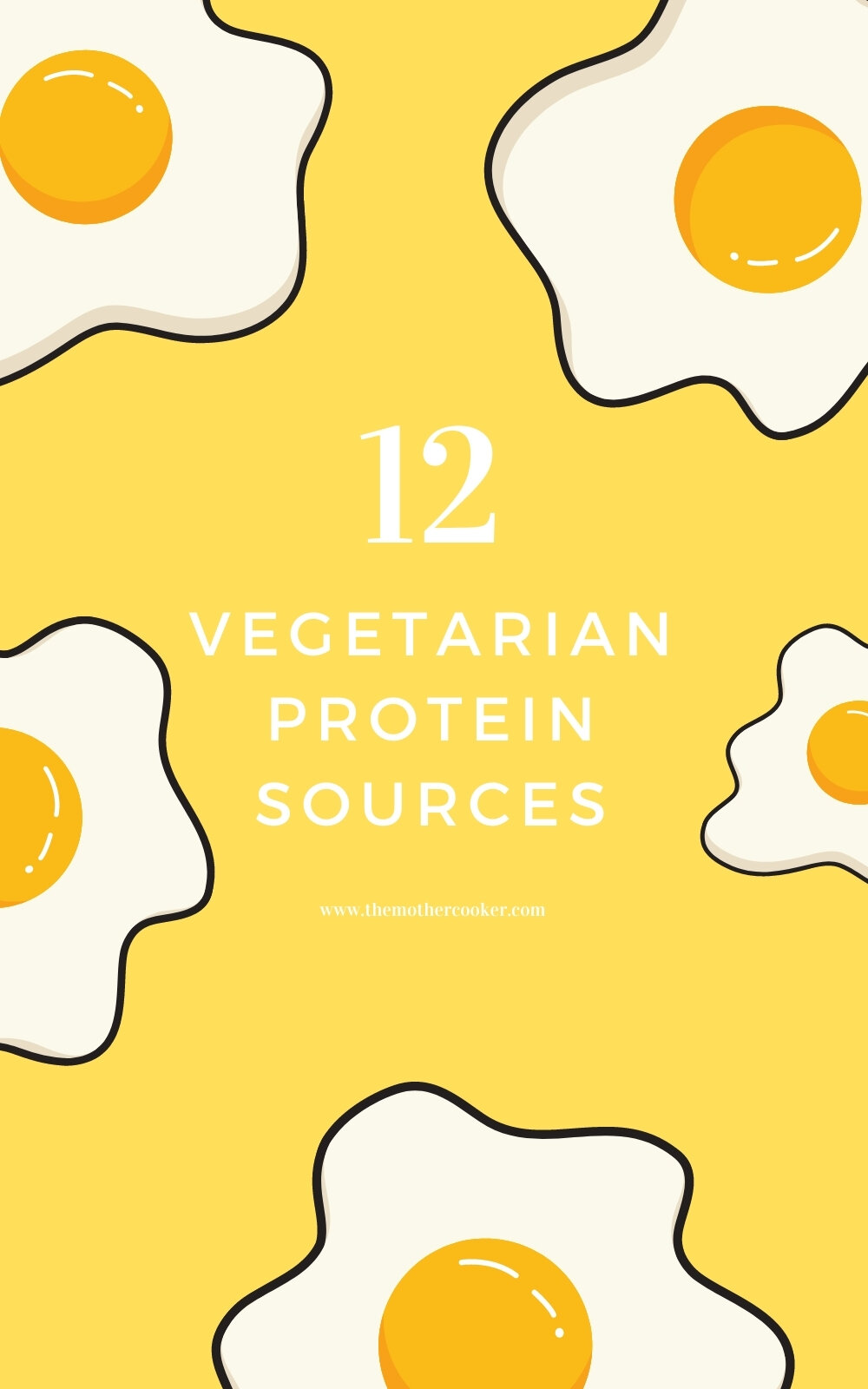12 Vegetarian Protein Sources

I eat a mainly vegetarian diet. The main question I am always asked is: where do you get your protein? A lot of people don't realise that the only reason you get protein from meat is because that animal has eaten plants. Cutting down on the animal products doesn't mean you will be getting less protein. It simply means that you are the one who is going to need to eat the plants instead. There are lots of vegetarian protein sources, but I thought I would share the top twelve with you today.
12 Vegetarian Protein Sources
-
Greek yoghurt
Providing protein, calcium, iodine, and potassium while helping you feel full for few calories. But maybe more importantly, yogurt provides healthy bacteria for the digestive tract which can affect the entire body.
-
Lentils
Lentils are low in calories, rich in iron and folate and are an excellent source of protein. They pack health-promoting polyphenols and may reduce several heart disease risk factors. They also come in lots of different colours.
-
Beans
Beans contain amino acids, which are the protein building blocks that the body uses to heal and make new tissues, such as bone, muscle, hair, skin, and blood.
-
Cottage Cheese
Cottage cheese is one of the best sources of calcium. Experts have said that it can fulfil 8% of the daily recommended value. 100 grams of cottage cheese has a whopping 83 grams of protein.
-
Hemp Seeds
Hemp seeds are rich in healthy fats and essential fatty acids. They are also a great protein source and contain high amounts of vitamin E, phosphorus, potassium, sodium, magnesium, sulphur, calcium, iron and zinc.
-
Chia Seeds
Chia seeds contain a decent amount of protein. By weight, they’re about 14% protein, which is very high compared to most plants. They also have a good balance of essential amino acids, so your body should be able to make use of their protein content.
-
Edamame
In addition to them being a decent source of soy protein, edamame are rich in healthy fiber, antioxidants and vitamin K.
-
Green Peas
Green peas are high in nutrients, fiber and antioxidants, and have properties that may reduce the risk of several diseases. You'll pack in 5g of protein per 100g of peas.
-
Quinoa
When following a plant-based diet, you need to find nonanimal sources of protein to ensure you are getting enough. One cup of cooked quinoa weighing (185g) provides 8.14 g of protein.
-
Peanut Butter
Each 2-tablespoon serving of peanut butter contains more than 8g of protein, 2g of dietary fiber, 208 milligrams of potassium, more than half a gram of iron, 24 micromilligrams of folate, 188 calories and 3 grams of sugars. Wow.
-
Almonds
Almonds contain lots of healthy fats, fiber, protein, magnesium and vitamin E. The health benefits of almonds include lower blood sugar levels, reduced blood pressure and lower cholesterol levels.
-
Eggs
Eggs are a very good source of inexpensive, high-quality protein. More than half the protein of an egg is found in the egg white, which also includes vitamin B2 and lower amounts of fat than the yolk. Eggs are rich sources of selenium, vitamin D, B6, B12 and minerals such as zinc, iron and copper.

